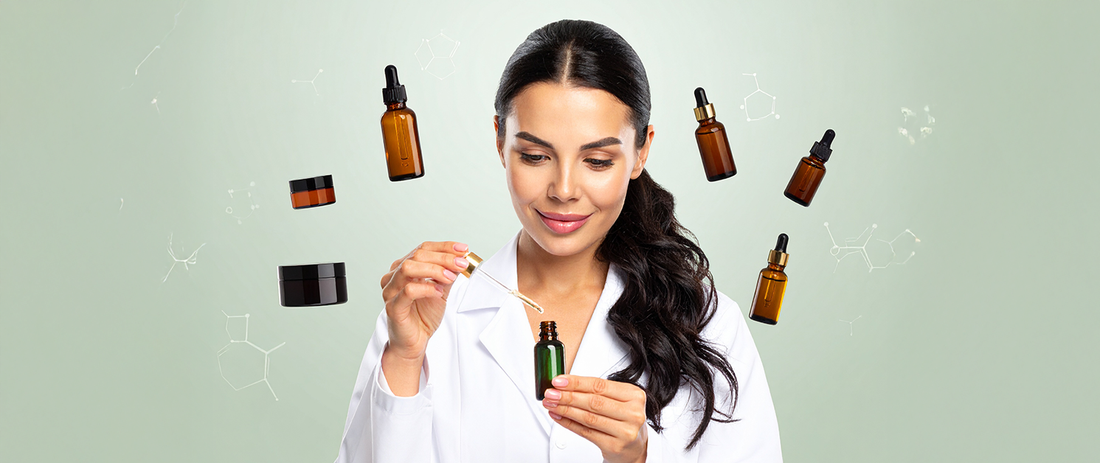These days, everyone's wondering the same thing: how to get glowing skin! However, there seems to be a never-ending supply of skin-care advice available online, from your local beauty artist to your friends. By making sure that our daily routine includes sunscreen, drinking lots of water, and remembering to take off our makeup before bed, we've largely covered the fundamentals. But it seems like there are always new products, methods, or ingredients available these days. And this might make you think about who to trust. Well, the best thing to do is get guidance from the ultimate experts of skincare and beauty --dermatologists!
Here are some skincare secrets of the best dermatologists.
Sunscreen is a Daily Must
Wearing sunscreen is essential to keep your skin healthy. It allows you to prevent skin diseases like skin cancer and wrinkles, fine lines, and hyperpigmentation. If you live in a warm, sunny city or work outside, sunscreen is a must. However, it's still crucial even if you live in an area that frequently experiences cloud cover or spend most of your time indoors. Many people don't realize how much sun exposure they get every day from dog walks, windows, and sports. Not only that, lower temperatures and gloomy days also expose you to UV radiation. Dermatologists advise applying sunscreen with at least 30 SPF to your face, neck, and any other exposed skin area, including areas you might not typically think about, like the backs of your hands and your ears. Generally speaking, you should use as much sunscreen as you can fit on your fingertip to cover your palm's surface. You can get the best sunscreen for oily skin and dry skin at Skin Lab and protect your skin.
Use Retinol During Your Twenties
Many dermatologists recommend using retinol in your twenties. It can encourage speedy cell turnover, minimize clogging of pores, and improve pigmentation. Not just that, retinol is also used to increase collagen and elastin in the body which minimizes fine lines and wrinkles, making you look younger. Remember to look for a retinol product that works without irritating or drying your skin. It is also recommended to start with lower dosages so that your skin can get used to the product.
Gently Exfoliate Your Skin
Dermatologists use moderate at-home exfoliation in addition to in-office resurfacing techniques like microdermabrasion, "lunchtime" peels, and lasers. Here, the word "gentle" is crucial. Exfoliation, whether chemical or manual, helps topical creams and serums perform better by removing dead cells that remain on the skin's surface, clearing clogged pores, and restoring a healthy glow. Remember that gentle exfoliation is always good. However, over-exfoliating can be harmful. It can make the skin more prone to dryness, irritation, and a lifeless appearance. Hence, don't go overboard. For beginners, an exfoliating mask once a week is sufficient, and if you use retinol at night, that's your natural buffing system.
Sleep Properly to Prevent Wrinkles
Sleeping is the second biggest source of wrinkles, after exposure to sunshine or ultraviolet radiation. Sleeping with your face pressed against a pillow for about 2,500 hours a year is like ironing wrinkles into your skin. Make sure your head is positioned so that the lower portion of your face never comes into contact with your pillow. This keeps the face from being squashed, which would make the creases that occur with aging worse. These are the deep lines that run from the nose to the corner of the mouth on each side of the face. They are also referred to as "parenthesis" lines, and they get deeper every time you laugh or grin. Therefore, make sure you’re sleeping the correct way.
Don't Overlook Your Neck
Have you noticed wrinkles on your neck? The 45-degree angle at which you rest your head to gaze at your phone repeatedly squeezes the neck, a condition known as "tech neck," which leads to early creases and folds. The majority of people are aware that the neck should be moisturized, and many do so, but they make the error of treating the neck as an afterthought. This is especially true with sunscreen, as UV rays from the sun are the main cause of premature skin aging. Applying a second coat of sunscreen alone to the neck is the best method for this area. Make sure to use your moisturizers and serums in addition to your sunscreen.
